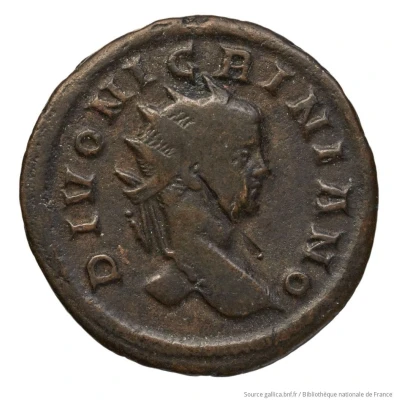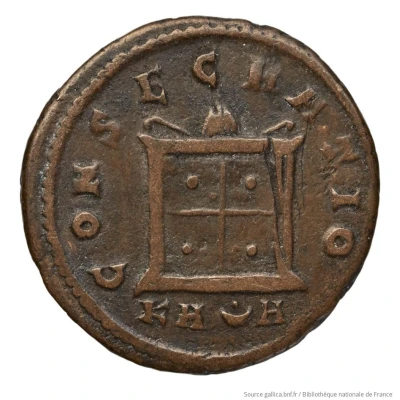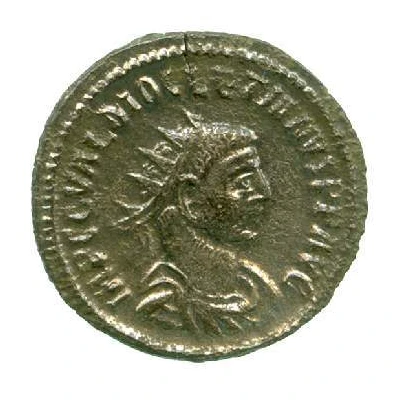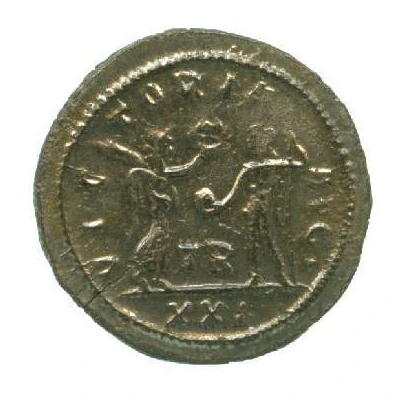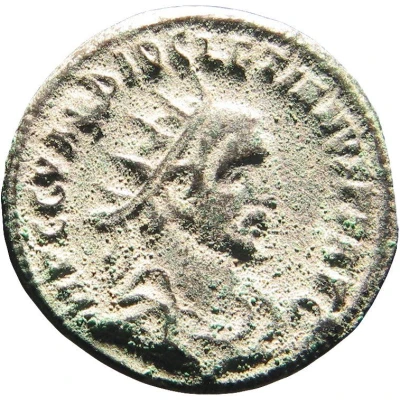
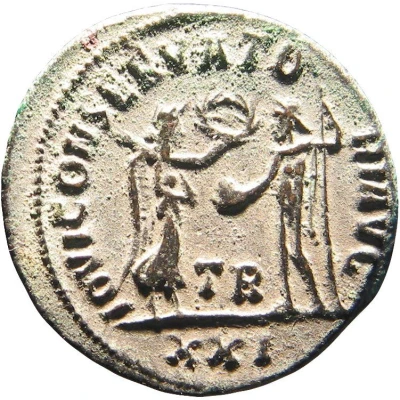

© American Numismatic Society (ANS)
Antoninianus - Diocletianus IOVI CONSERVATORI AVG; Tripolis
| Silver | 4.1 g | 21.5 mm |
| Issuer | Rome › Roman Empire (27 BC - 395 AD) |
|---|---|
| Emperor | Diocletian (Gaius Aurelius Valerius Diocletianus) (284-305) Maximian Herculius (Marcus Aurelius Valerius Maximianus) (286-305) |
| Type | Standard circulation coin |
| Years | 284-290 |
| Value | Antoninianus (1) |
| Currency | Antoninianus, Reform of Caracalla (AD 215 – 301) |
| Composition | Silver |
| Weight | 4.1 g |
| Diameter | 21.5 mm |
| Shape | Round (irregular) |
| Technique | Hammered |
| Demonetized | Yes |
| Updated | 2024-10-05 |
| Numista | N#306180 |
|---|---|
| Rarity index | 91% |
Reverse
Victory, winged, draped, walking right, holding palm in right hand and presenting wreath to Diocletian, standing left, holding globe and sceptre.
Script: Latin
Lettering:
IOVI CONSERVATORI AVG
TR//XXI
Translation:
Iovi Conservatori Augusti.
To Jupiter, the protector of the emperor (Augustus).
Comment
Mass varies: 3.92–4.35 g;Diameter varies: 21–21.5 mm;
Example of this type:
American Numismatic Society (ANS)
Source:
Online Coins of the Roman Empire (OCRE)
Interesting fact
One interesting fact about this coin is that it was issued during the reign of Diocletian, who was known for his economic and military reforms, including the introduction of a new currency system that replaced the traditional Roman denomination system. The Antoninianus, which was introduced by Diocletian in 293 AD, was a silver coin that was equal to 25 denarii and was used to pay soldiers and civil servants. The coin's design featured the image of Jupiter, the Roman god of the sky and thunder, on the obverse, and the emperor's image on the reverse. The coin's inscription, "IOVI CONSERVATORI AVG," translates to "To Jupiter, the Preserver of the Emperor." This coin is a rare and valuable artifact that provides insight into the economic and political history of the Roman Empire during the late 3rd century AD.
